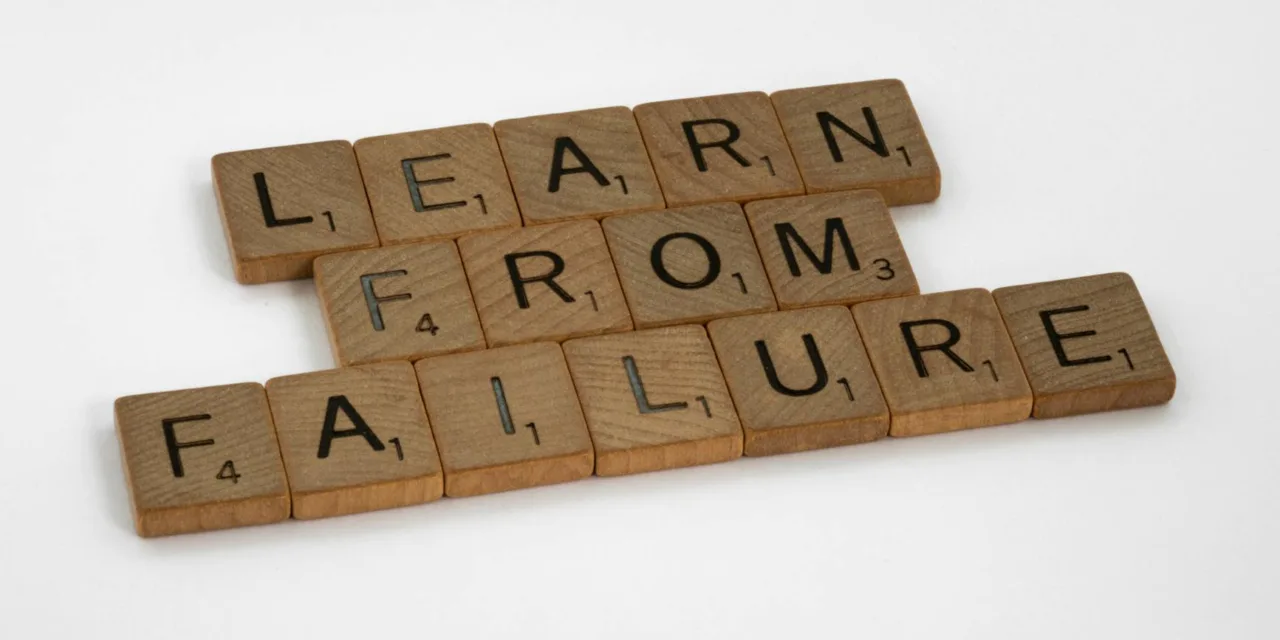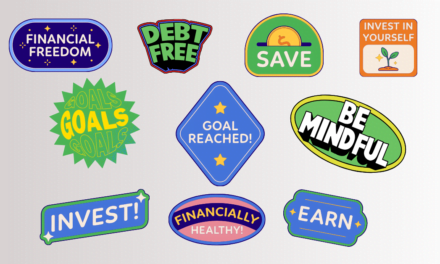We will discuss the biggest money mistakes I’ve seen while watching the Financial Audit with Caleb Hammer. But first, our disclosure:
Disclosure: This post may contain affiliate links, meaning we earn a commission on purchases made through those links at no extra cost to you. As an Amazon Associate, I earn from qualifying purchases.
Disclaimer: The content on this site is for informational and educational purposes only and does not constitute financial, investment, legal, tax, or any other professional advice and should not be used as a substitute for professional advice. For more details, read our full Disclaimer.
Who is Caleb Hammer?
Caleb Hammer is the creator of “Financial Audit,” a YouTube channel and podcast focusing on personal finance. Every week, he brings on guests who need major help with their money. Caleb uses a tough-love approach to get through to his guests and doesn’t hold back when reviewing their finances. He accomplishes this by scrutinizing each guest’s credit card and bank statements, highlighting their spending habits for everyone to witness.
Be warned: Financial Audit may not be for you if you are easily offended. It is entertaining to watch and listen to, but it’s unsuitable for anyone under 18. So, if you have young children at home, you will want to avoid streaming it on your Amazon Echo while making dinner. The curse words will be beeped out, but Caleb dives into some adult themes as he helps his guests with their money issues.
At first, I was skeptical of Caleb Hammer’s show, as it reminds me a little of the radio shock jocks of the 1990s. His thumbnails don’t help. But the shock value hits home, and I now understand that is the beauty of his show.
The Financial Audit with Caleb Hammer has been eye-opening. It reveals the struggles real people face with money and debt. It is raw and the real deal, and I can’t get enough of it. I have not found another show offering a detailed look into people’s spending habits.
Kudos to the brave guests who come to his show and share intimate details about their finances. Hold your judgment of them! We can all learn a lot from their struggles and spending decisions. I know I have, and I believe that is the primary goal of Caleb Hammer and the Financial Audit.
The Ultimate Money Mistakes As Seen on Caleb Hammer
Below are the most common and biggest money mistakes I have seen on Caleb Hammer’s show. They are in no particular order. It is in everyone’s best interest to avoid these mistakes whenever possible. If you have already made these mistakes, it’s never too late to correct them and set things right.
Eating Their Way Into Debt With A Fast Food Habit
Get ready to be shocked! Many people on Caleb Hammer’s show spend over $1,000 a month on fast food. You read that right—$1,000 ON FAST FOOD EACH MONTH! They’re not dining at fancy restaurants, and this does not include groceries. They’re spending a grand on burgers, fries, and coffee. But wait, there’s more! They’re putting this all on their credit cards, charging them 20-30% interest.
This is a classic example of ‘death by a thousand cuts.’ Fast food may seem cheap, but the costs add up quickly when you spend $5 every morning on a coffee, followed by a $15 lunch and dinner. It amounts to $35 per day or over $1,000 each month for just one person! On the other hand, a $1,000 monthly grocery budget can easily feed a family of four.
This is my beef with another popular YouTuber and podcaster, Ramit Sethi. I like his podcast and book “I Will Teach You To Be Rich,” but how dismissive he is about “small” purchases bothers me. He loves to sound off on how stupid it is to worry about buying a $5 coffee every day, brushing it off as a trivial expense. That is BS, and Caleb Hammer’s show proves the big financial impact of these small expenses.
Many people come on the “Financial Audit” claiming they are living paycheck-to-paycheck but do not realize they spend hundreds of dollars each month on fast food alone. That is not trivial. Heck, even if you only spent $5 each day on coffee, that still adds up to $150 a month.
Let’s face it—these small expenses add up to big money. That is money that could have gone toward paying down debt and investing in the future.
Opening Up Credit Cards Like They Are Going Out Of Style
Some guests on the Financial Audit show must have eight or more credit cards. They seem to open a new credit card for everyone they max out. It’s like a kid on Christmas day, except instead of opening presents, they’re getting debt. The ramifications of this practice are severe.
Caleb’s guests are paying exorbitant fees and interest on these credit cards, but this is only half the problem. The bigger issue is that they are damaging their credit scores by frequently opening new credit cards and maxing them out. A poor credit score results in higher interest rates on everything from car loans and mortgages to personal loans, leading them deeper into debt.
Before they know it, they struggle to make the minimum payments on their credit cards. As a result, the interest and fees pile up, sending their credit card statements into the stratosphere. Once this vicious debt cycle begins, it becomes difficult to break free from it when paying 20-30% interest.
The moral of the story is that debt is like a bad rash – the more you scratch, the worse it gets. And just like scratching a bad rash, relying on credit cards to solve your money problems is a terrible idea. It’s like playing with fire – one moment you’re enjoying the warmth, and the next thing you know, you’re burned.
Paying Overdraft Fees
Let’s be honest: if someone opens multiple credit cards to bridge the gap between their savings and spending, the odds are that they have very little money in the bank. This is the exact situation for many guests who visit Caleb Hammer for help. Unfortunately, Caleb’s guests pay dearly for their lack of savings through overdraft fees.
Overdraft fees are not cheap at around $30-$35 per transaction. Notice that I said per transaction, not per day. Suppose someone has insufficient funds in their bank account but continues using their debit card or ATM for transactions. In that case, they can quickly accumulate over a hundred dollars in overdraft fees in a single day.
The result is that many of Caleb’s guests spend hundreds if not thousands, of dollars in overdraft fees yearly! Talk about kicking a person when they are down. These overdraft fees can be soul-crushing.
The obvious takeaway from this situation is that having sufficient savings is crucial. However, if you find yourself in a position similar to Caleb Hammer’s guests, then at a minimum, keep track of your bank account balance and recurring expenses. It’s one thing to rely on credit cards with high interest rates to make ends meet, but it’s even worse to get hit with overdraft fees from your bank on top of that.
Buying Way Too Much Car
It’s shocking how many guests purchase expensive cars while maxing out their credit cards. These are guests making well under six figures, with poor credit scores, buying $50,000 to $60,000 cars. Their poor credit scores lead them to finance vehicles at 14-18% interest rates over 72 to 84 months. The result is monthly car payments exceeding $1,000 for seven years or more!
Believe it or not, it gets much worse for Caleb’s guests. They have no savings, so they’re putting the down payment on their new cars on credit cards. I know America loves their cars, but is it worth the cost?
With the rapid depreciation and never-ending expenses of repairs, gas, and insurance, owning a car is a bottomless pit of wealth destruction. These expenses stack on top of the monthly car loan payment and can add up to another $500 every month. It isn’t easy to save and invest when putting so much money toward a vehicle.
What car you buy can change everything about your finances. The goal should be to buy a modest, reliable vehicle at the best price and shortest terms. If someone needs to finance a car for 72 months, they can’t afford it. I know firsthand the power of this one decision.
In my thirty years of driving, I financed only two cars and had car loans for six years. When it comes to my cars, I’m like a cheapskate who squeezes every last drop of toothpaste out of the tube. I drive them until they can no longer run. Then, I give them a proper send-off by donating them to charity.
It’s incredible how much money you can save when you don’t care about what you drive.
Having No Specific Goals and Plans
I have watched and listened to many episodes of Caleb Hammer. Out of all the guests on his show, I do not think there was one who had any specific goals or plans, be they short—or long-term. Not having goals is their biggest money mistake by far.
Savings goals are nonexistent, and retirement planning is an afterthought, relegated to a couple hundred dollars in an Acorns account. The lack of goals and priorities leaves Caleb’s guests rudderless, spending impulsively without any savings. This puts them in a difficult financial position from which the debt cycle begins.
Before they know it, they are racking up credit card debt and overdraft fees to make ends meet. Since they are not tracking their money, they end up paying a thousand dollars a month for fast food without ever knowing it. The next thing Caleb Hammer’s guests know is that they are missing payments and having accounts go to collections.
Let this be a lesson to us all. Without any savings and spending goals, there is nothing to aim for. Sure, many of Caleb’s guests say they want to buy a house or car or pay off debt. Yet they have no savings and are maxing out credit cards. That is a goal without a plan, and a goal without a plan gets you nowhere.
The takeaway is that money doesn’t grow on trees, nor does financial success. It’s important to remember that financial success doesn’t come easy—it takes time and effort (and some luck). So, it’s essential to figure out what’s most important to you when it comes to your money, set goals, and make a plan. That way, you’ll have the funds you need to achieve your goals and live the life you want.
Not Having The Slightest Savings and Investments
In all the episodes I have watched, Caleb Hammer had just one or two guests who had any semblance of an emergency fund. Every other guest had minimal to no savings, and their checking accounts would start or end in negative territory. Then, there is retirement savings.
When Caleb mentions retirement accounts, it is met with blank stares or silence. If any of his guests have a 401 (K), they are borrowing against it or only putting a few dollars here or there into an Acorns IRA. The worst part is they are missing out on the best decades for investing: their 20s and 30s.
Another popular podcast, The Money Guy Show, points out that $1 invested in your twenties has the potential to grow to $88 by the time you retire. However, if you start investing in your thirties, the wealth multiplier drops to $23 and decreases with each passing decade.
Therefore, it is important to remember that time in the market is the single most significant factor in building wealth. The sooner you start investing, the better off you will be.
Imagine a world where you could retire with over $1 million by giving up fast food and investing in a low-cost, broad-market index fund. Regardless of what Ramit Sethi says, you can achieve this goal by brewing your coffee at home instead of going to a coffee shop.
By starting to invest in your 20s, you have the potential to retire a millionaire by investing only $100 to $200 each month. So, let’s all put down those burgers and start investing. Who needs fast food when you can have a comfortable retirement?
Taking Out Payday Loans
Payday loans are a terrible idea. If you’re paying an interest rate over 100%, it’s like borrowing money from the devil himself. Some states cap the interest rate closer to credit card rates, but that is still horrible. If you’re in Texas and get a payday loan, you could face an APR of over 600%!
It is surprising how many of Caleb Hammer’s guests take out payday loans to pay for things as simple as a phone or some other item they want. One guest paid over $2,000 for a $600 phone. Another guest used payday loans to buy things for her children because she wanted to make them happy. That $5 Big Mac for the kids just cost her $15!
Most guests on Caleb Hammer’s show get there by blowing money on wants or convenience, not needs. They do not plan meals, a budget, or retirement. This lack of planning leads to impulsive purchases of fast food and convenience items that erode their savings. As a result, they max out their credit cards and resort to payday loans to make ends meet.
The lesson here is that if you use payday loans to cover expenses, you need to examine your spending carefully. You must discern between wants and needs and plan to avoid overspending. Above all, you want to avoid payday loans like the plague because they are financial death.
Putting It All Together: What I learned from Caleb Hammer
If you can look past the Financial Audit’s shocking thumbnails and headlines, you will find a show that examines people’s finances in depth. Caleb Hammer reviews his guests’ income and spending habits, going through their credit card and bank statements line by line. Such an intimate look at other people’s spending habits can teach a lot.
At the core of his guests’ money issues is their inability to control their wants and lack of long-term thinking. There is nothing wrong with wants, but necessities come first. The key is to focus on necessities first, like saving and investing for the future, putting a roof over your head, groceries, and debt repayment.
Once those needs are met, someone can start spending more on what they want. This is where Ramit Sethi’s idea of a conscious spending plan comes into play. You split your income into buckets that allow you to meet your current and future needs while still being able to have some of your wants.
Remember, being successful with money requires thoughtful, deliberate decisions focused on the future. Start with your goals and prioritize your spending around those goals. Control your money; don’t let it control you.






